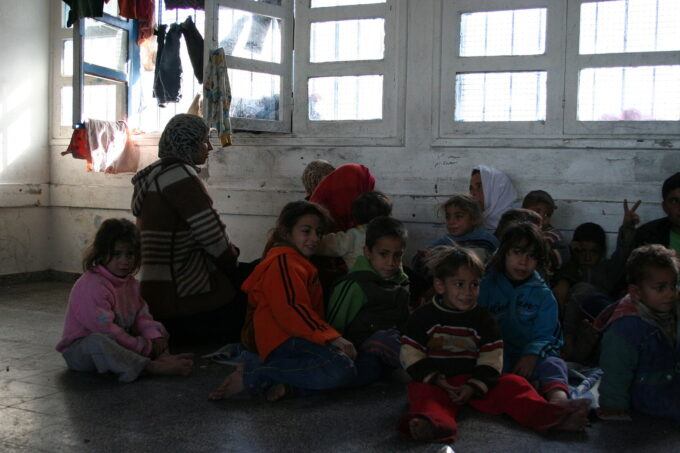What’s Next for Gazans?

Photograph Source: Al Jazeera English – CC BY-SA 2.0
In genocide, the end game is often resettlement. Take for example, the Namibian genocide of 1904-1908. After defeating the Herero and later the Nama people in bloody battles, the Germans drove them into nearby deserts, where most of them died of dehydration and starvation. The more recent genocide of the Rohingya in Myanmar in 2016-2017 involved a different type of resettlement: the mass escape to Bangladesh from military atrocities (the burning of villages, extrajudicial killings, and other human rights abuses).
In Gaza, the IDF has applied successive waves of forced resettlement to push the civilian population from north to south. Beginning in October 2023, the IDF ordered the more than one million residents of North Gaza to move south, ostensibly to flee Israel’s relentless bombing of residences, businesses, hospitals, and schools in Gaza City and its suburbs. However, those fleeing southward discovered that even travel on the designated routes failed to offer safety. Many travelers were shot or detained for interrogation as they walked or rode as directed. Further evacuation orders over the next months pushed Gazans from population centers in central and southern Gaza, including Deir al-Balah and Khan Yunis, toward the Rafah border with Egypt.
After four months of IDF bombardment, the uprooted Palestinians now inhabit makeshift tents near the Rafah border. At the same time, the Israeli military has begun to bomb Rafah refugee camps and hospitals, raising a death toll that has already reached more than 27,000 mostly women and children (not including the thousands lying dead under the rubble of bombed-out buildings).
Palestinians who relocated to Rafah from the north and mid-Gaza Strip at the direction of the IDF are now asking, “Where do we go from here?”
Israel’s continuing siege that began in mid-October has largely blocked access to food, clean water, fuel, and medical supplies. Even internet connections are spotty, often down for days at a time. The grossly inadequate commodities supplied by aid trucks are sometimes targets of Israeli missiles or raided by desperately hungry people. As winter rain and cold torment families huddling in water-soaked tents, starvation and disease threaten everyone, especially young children.
Israel stands accused of using starvation as a weapon of war in Gaza. “It is not possible to create a famine by accident,” says Alex de Waal, executive director of the World Peace Foundation at Tufts University and author of Mass Starvation: The History and Future of Famine. After months of ignored international calls to open up aid channels, de Waal says famine in Gaza is now “inevitable.”
In the words of the Genocide Convention of 1948, acts of genocide against “a national, ethnical, racial or religious group” include “deliberately inflicting on the group conditions of life calculated to bring about its physical destruction in whole or in part.” As principal enabler and arms supplier to Israel, the Biden administration has made American taxpayers complicit in Israel’s starvation policy and other acts of genocide. Yet even now the U.S. President seeks to supply Israel with more billion’s worth of lethal arms.
So, what are the options for Gazans trying to survive bombs, starvation, illness, and injury in the midst of Israel’s new targeting of Rafah? Three obvious choices are:
(1) Return to Gaza City or Khan Yunis;
(2) Accept resettlement offers from other countries; or
(3) Attempt mass escape into Egypt.
The first option is untenable because almost everything for life in the north has been destroyed. The Gazans would not likely accept resettlement in another country except the U.S. (which is not holding out a welcome mat. That leaves only one realistic possibility: a mass escape into Egypt. While there are major physical barriers at the border, they might not withstand the combined force of a million plus people. Even if Israel should decide to accept a Hamas ceasefire proposal that would exchange hostages for the release of Palestinian prisoners in the West Bank, those steps could not save Gazans in Rafah; nor could they deter the upcoming famine.
What is most surprising is that both administration voices and the media, for all their talk of a two-state solution and PLO governance in the long term, have not addressed the more urgent question of “What’s next for the Gazans?” Meanwhile, thousands more of them will likely die of bombs, hunger, and disease.

0 Comments:
Post a Comment
Subscribe to Post Comments [Atom]
<< Home